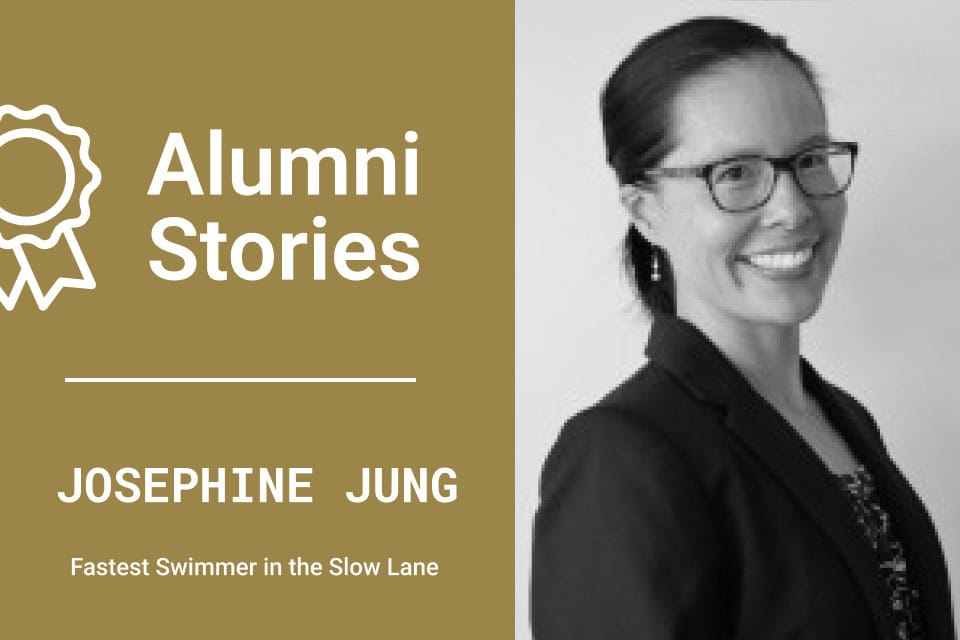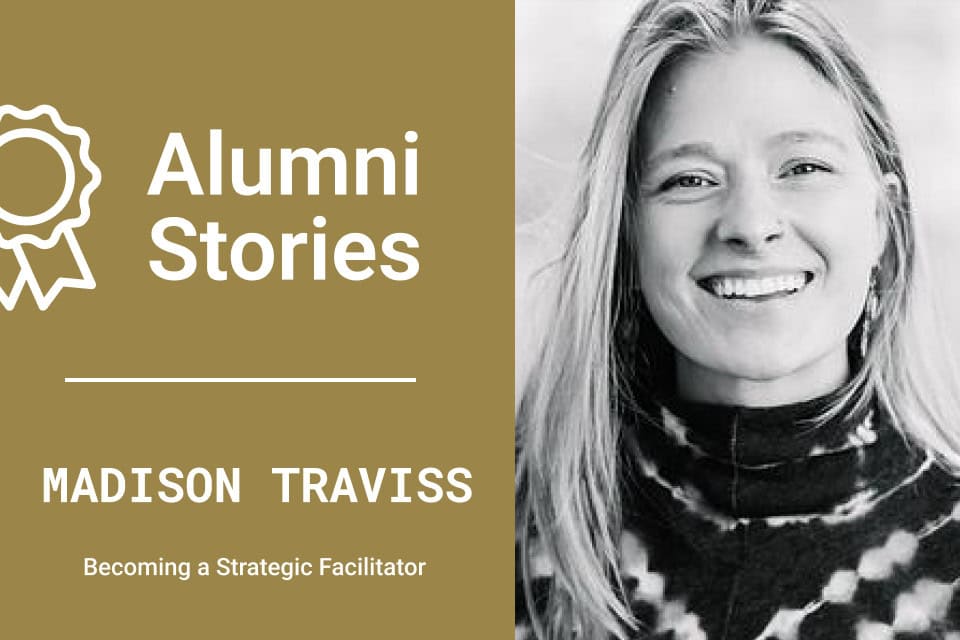How I Transformed My Impact Through Facilitation
A Career Crossroads
Six and a half years ago, I was sitting on my new couch in my new apartment. A few months prior, my wife and I had moved from Jersey City, NJ to Charlotte, NC. She had accepted a job at Wells Fargo, a great opportunity for her and a chance for us to be closer to family. I was working remotely for my employer in New York, sort of buying time until I found something in Charlotte. Aimlessly scanning job sites, I was feeling a bit lost career-wise. You see, my career had taken many twists and turns as my interests and passions changed. From engineering to supply chain, accounting to product management, I felt like a jack-of-all-trades, master of none. I came across a job posting by Ally Financial for an “Innovation Manager.” I was intrigued, submitted my resume and cover letter, and subsequently was asked to come in for an interview. I loved the people I met, and was inspired by Ally’s customer-obsessed culture. I was offered the job, which I enthusiastically accepted. I showed up on my first day, excited to “innovate” and make real change. However, I quickly realized that I had no idea what to do. I fell into research-mode, scanning any and all financial technology (FinTech) sites I could find, trying desperately to spot upcoming, innovative products and services in the financial services industry that may be a good fit for Ally. Honestly, it didn’t feel very innovative. I was worried I’d made a mistake by taking the job, and worse, had a growing feeling in my gut that maybe I just wasn’t innovative.
One Fateful Meeting
Then one day, my manager invited me into her office and proceeded to tell me about how she and a group of leaders in the company had just come back from a workshop at Stanford’s d.school. Her eyes lit up. She said they walked through a method for coming up with innovative products that was human-centered and focused directly on the end user. She went on and on about how engaging, collaborative, and creative it was, unlike any other workshop she had ever participated in. The other leaders were equally excited, so much so that they asked her to create an innovation strategy that was rooted in human-centered design. I was inspired and re-energized to help bring the strategy to life. I learned everything I could about human-centered design and design thinking.
Early Success
And in a matter of months I found myself working with a small, scrappy team of designers, developers, and product strategists, using design thinking to tackle business challenges. We moved fast, talking to consumers multiple times a week, building and testing concepts as fast as we could. For example, I can clearly remember spending a Monday morning ideating on sticky notes an idea for a bucketing system on a savings account that would help people organize their savings, wireframing a digital experience that afternoon, designing a clickable prototype where people could experience how to allocate their money across buckets on Tuesday morning, and going out at midday to a nearby food court, prototype on my phone, and getting feedback from people as they waited for their lunch. Two days later, we were back at the food court, testing our refined prototype with more lunch goers, getting more feedback on our refined prototype. Working this way, in a matter of weeks we were able to go from conducting empathy interviews with consumers about how they save money, to a high fidelity, clickable mobile prototype tested by dozens of users. This work eventually led to the now award-winning savings tools, Buckets and Boosters, that come with Ally’s Online Savings Account. Now THAT felt like innovation.

A Shift to Facilitation
We had proven that design thinking works. But we were just one team, tackling one project at a time. I started telling myself “imagine how innovative Ally could be if more teams in the organization worked this way?” That’s when I set out to design and facilitate in-house design thinking workshops that could not only build awareness and understanding of human-centered design, but inspire employees to adopt a design thinking mindset in their daily work. I was convinced this was the right next step in our innovation strategy…but was I a facilitator? Was I equipped to guide people through workshops effectively? I needed some help.
“Imagine how innovative Ally could be if more teams in the organization worked this way?”
Getting Plugged In
Enter Voltage Control’s Facilitation Certification program. Now, Voltage Control was already on my radar because I had attended a “mastering large virtual meetings” workshop during the pandemic, which opened my eyes to virtual whiteboard tools like Mural and Miro and how to use them effectively in my design thinking workshops. And it was through that workshop that I realized the facilitators at Voltage Control were exceptional at creating engaging, collaborative experiences (even over zoom!).
The Facilitator Certification Program at Voltage Control was a multi-faceted learning experience that incorporated readings, lecture, practice, discussion, and reflection. I not only learned and practiced facilitation techniques, but I came to understand the “why” behind them. For instance, applying a 1-2-4-All Liberating Structure discussion format might not seem important or even necessary, but experiencing it during the program helped me realize the power of allowing people the time to think on their own and then sharing in pairs (and fours, and then full group). If you go right from individual note-taking to full group share out, you might get crickets and struggle to generate discussion. You need to allow people to warm up to the group and feel comfortable engaging. It’s such a simple technique, but it really does enable richer sharing and collaboration.
Beyond practicing techniques, I also enjoyed meeting the other participants in my program cohort – a vibrant, diverse group of facilitators from different backgrounds, industries, even countries bringing so many different experiences and skills to the program. For instance, early in the program I was paired with Nina from California, who had extensive design thinking experience, though, in the field of education. She shared a story of how she facilitated a challenging workshop series that brought students, teachers, and school administrators together to solve school safety issues. I listened intently as she recounted tense exchanges between students and administration and how she structured the space and conversations to allow for constructive, respectful discussion. She really helped me appreciate the value of creating safe spaces for participants so they feel comfortable sharing their thoughts and ideas. I realized how important this was in a corporate setting where people are often hesitant to speak up with wild or controversial ideas. Thank you, Nina! Being a facilitator within a company can feel isolating at times, so connecting and learning from other facilitators like Nina fosters a sense of belonging.
“Like Phil, I truly appreciated the opportunity to interact with someone facilitating design work from another field. Working with Phil provided me with an opportunity to explore my thinking and ideas through a different lens (sometimes being stuck in the familiar can affect creativity). Phil’s approach to facilitation and idea generation pushed my own thinking and ultimately helped me to improve my craft. ” – Nina Mancina
Opening Doors
Since receiving my facilitation certification from Voltage Control, I’ve been able to expand my offerings beyond design thinking workshops. I also guide Ally teams through project retrospectives, strategic planning sessions, team building workshops, and ideation sessions. This has led to some great opportunities to engage with employees across the company, even unexpected ones. I recently facilitated a session for senior leaders of the bank’s compliance organization, helping them break down silos and come together to brainstorm ways to work better together. To kick things off, I approached a large whiteboard at the front of the room and drew a giant sailboat, with wind billowing a large sail on the upper half, and multiple anchors weighing the boat down on the lower half. I then asked them individually to identify and post up “What’s moving us forward?” (the wind) and “What’s holding us back” (the anchors). After facilitating them through productive discussion around themes that emerged as a result of doing the sailboat activity, I thought to myself “Wow, I never thought I’d be doing this, and certainly not with this group!” One of the participants even came up to me afterwards, saying “You were organized, made us think critically, and really helped us to discover our strengths and opportunities. And you did it with energy and excitement, which is how we all need to do our work every day! Thanks!”

A New Perspective
I’ve grown a lot in the last 6 years, probably more than any other period in my career. I used to measure my value as an employee only through the contributions I directly made. But now I’ve come to realize that my impact can be so much greater by facilitating others to be more creative, more collaborative, more productive. Facilitation isn’t about running meetings or putting on a show. It’s about creating environments and experiences that enable people to be themselves and get the most out of each other. It’s kind of a superpower, I’m not gonna lie! Not only has facilitation enabled me to help others achieve their potential, it’s helped me become a more poised, empathetic, and confident leader. And Voltage Control has been instrumental in providing me with the tools and community to realize my full potential. So if you want to level up your ability to help others collaborate to find innovative solutions to human-centered problems, Voltage Control – and their Facilitation Certification Program – should be the first stop on what is sure to be a fulfilling journey both professionally and personally.


